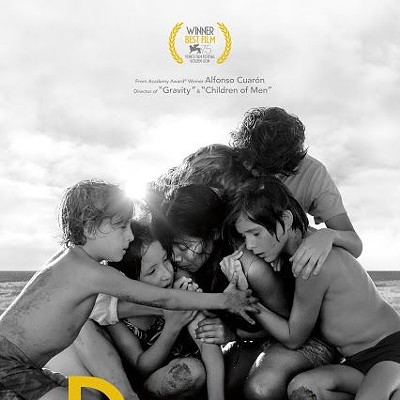Now Showing
[
{
"name": "Air - MedRect Combo - Inline Content 1",
"component": "14680855",
"insertPoint": "7",
"requiredCountToDisplay": "5",
"parentWrapperClass": "fdn-ads-inline-content-block"
},{
"name": "Air - MedRect Combo - Inline Content 2",
"component": "14680856",
"insertPoint": "15",
"requiredCountToDisplay": "9",
"parentWrapperClass": "fdn-ads-inline-content-block"
},{
"name": "Air - SVP - Leaderboard - Inline Content - 2",
"component": "16852291",
"insertPoint": "10",
"requiredCountToDisplay": "10",
"parentWrapperClass": "fdn-ads-inline-content-block"
},{
"name": "Air - SVP - Leaderboard - Inline Content - 3",
"component": "16852292",
"insertPoint": "20",
"requiredCountToDisplay": "18",
"parentWrapperClass": "fdn-ads-inline-content-block"
},{
"name": "Air - SVP - Leaderboard - Inline Content - 1",
"component": "16852290",
"insertPoint": "25",
"requiredCountToDisplay": "22",
"parentWrapperClass": "fdn-ads-inline-content-block"
}
]
FEVER PITCH PPP
Since an alarming number of people have this pathological need to designate all movies as either chick flicks or dick flicks, I submit the new comedy Fever Pitch for their perusal. The theatrical poster - with stars Drew Barrymore and Jimmy Fallon looking all cute and bubbly as they press up against each other - and the boy-meets-and-loses-and-regains-girl scenario would suggest that this skews female. But Fever Pitchs true subject isnt the love between a man and a woman but between a man and his favorite sports team. Fallon, the Saturday Night Live vet trying to salvage his burgeoning film career after Taxi crashed and burned so spectacularly last fall, plays Ben Wrightman, a mild-mannered school teacher who decides to ask the sexy and successful consultant Lindsey Meeks (Barrymore) out on a date. Lindsey isnt used to dating guys like Ben i.e. men without cash to burn and designers suits lining their closets but she takes a chances and likes what she sees really likes what she sees. Then he drops the bomb: Hes a Boston Red Sox fan. Initially, Lindsey thinks she can work around his undying devotion to the cursed team that hadnt won a World Series since 1918 (indeed, the movies ending had to be rewritten during filming to incorporate the teams miracle win last year). But her patience starts to wear thin once she realizes that he will never love her the way he loves the Sox. As the working girl who finds reality impeding on her fairy tale romance, Barrymore sparkles brightly, as she always does when faced with these sorts of rom-com predicaments. Less successful is Fallon, a vanilla comedian who doesnt always capture his characters overriding passion for the Sox or his burgeoning affection for Lindsey.
SAHARA PP
Sahara may be based on the bestseller by Clive Cussler, but it feels like it wants to be either a knock-off of Raiders of the Lost Ark, a send-up of the James Bond oeuvre, or an instant sequel to last years National Treasure. Matthew McConaughney, a semi-movie star whose appeal still escapes me, plays the role of dashing adventurer Dirk Pitt as if he were a party-hardy frat boy who ventured out into the real world after all campus kegs were tapped dry. Steve Zahn, an ersatz character actor whose appeal likewise eludes me, plays the role of Dirks wisecracking sidekick Al Giordino. And Penelope Cruz, a Spanish beauty whose appeal vanishes in English-language films, tags along for the ride as the dedicated Dr. Eva Rojas, although the actress seems so disinterested in whats happening around her that its hard to believe her character would even have the medical know-how to prescribe aspirin. The storyline, a thick hodgepodge involving a Civil War battleship that went MIA in the title desert, a mysterious disease thats wiping out scores of Africans, and a sneering French villain (Lambert Wilson) to placate the yahoos who fell for that freedom fries nonsense, never grabs viewers by the collar, making Sahara an adventure tale in which the action is more exhausting than exciting.
MELINDA AND MELINDA PP1/2
The problem with Woody Allen these days isnt that hes run out of ideas; the problem is that hes running out of ways in which to frame these ideas in compelling contexts. Melinda and Melinda starts with a typically inspired concept: Two playwrights (Wallace Shawn and Larry Pine) discussing whether life is inherently tragic or comic both hear an anecdote involving a young woman named Melinda. The playwright who specializes in tragedies envisions the story as a downer in which Melinda is a distraught, suicidal woman whos perpetually on the receiving end of lifes hard knocks, while the playwright known for comedies views it as a sparkling tale in which Melindas an endearing free spirit involved in frothy romantic entanglements. The plastic bubble that surrounds Woody Allen movies is still as firm as ever: His stories continue to take place in a hermetically sealed New York in which money is no object and everyone talks like a philosopher. But his instincts clearly arent as sharp as before, since the comic half isnt especially funny and the tragic half isnt especially heartbreaking.
MILLIONS PPP
Seven-year-old Damian (Alex Etel), still coping with the death of his mother, receives regular visits from historys honored saints (Francis, Peter, etc.), so when a bag of cash lands in his lap, he figures it came straight from God and he should dole it out to the poor. But his older brother Anthony (Lewis McGibbon) has a firmer grasp on the advantages of wealth and tries to convince his sibling that they should hunt for sensible business investments instead. What neither boy knows is that the loot is actually stolen, and that the thief (Christopher Fulford) is determined to recover it at all costs. Forget the tepid Robots: Parents who actually care about quality entertainment should take their kids to see this instead.
SIN CITY PPP
When director Robert Rodriguez first decided to bring the graphic novels by Frank Miller to the big screen, he chose to lift many of the images and accompanying dialogue exactly as they appeared on the page, with scarcely any changes in the angles or lighting that defined these individual panels. By remaining so faithful to Millers vision, Rodriguez has bridged the gap between cinema and comics more explicitly than any filmmaker before him, in essence leveling the playing field and not allowing fans of either medium to establish a foothold of superiority. In the manner of Quentin Tarantinos Pulp Fiction, the movie is a circuitous affair in which the disparate storylines all taking place in Basin City (Sin City for short) occasionally overlap and characters in one vignette might appear briefly in another segment. The glee with which Rodriguez films the sadism may be off-putting, but the joy with which he pays tribute to both the comic form and film noir is positively infectious.
MISS CONGENIALITY 2: ARMED AND FABULOUSP
A textbook example of formula filmmaking at its most dim-witted. When Gracies superior (Ernie Hudson) comments that Gracie will be the most famous celebrity in Vegas, we use the half-second pause that follows to predict that the punchline will involve Wayne Newton. Voila: Unless Wayne Newtons in town! Equally witless are the characters, starting with an offensive gay stylist (Diedrich Bader).
GUESS WHO PPP
Applying role reversal to the original 1967 template, Guess Who stars Bernie Mac as Percy Jones, a bank loan officer whos on the verge of throwing a 25th wedding anniversary party with his wife Marilyn (Judith Scott) when he learns that his lovely daughter Theresa (Zoe Saldana) is coming home with her new boyfriend in tow. As Percy states at one point, hes expecting his child to bring home a Denzel Washington; instead, she drags in some punkd white boy named Simon Green (Ashton Kutcher). For all its attention to the racial divide, Guess Who isnt as interested in being the new Guess Whos Coming to Dinner as it is in taking its place as the next Meet the Parents. w
Exploring issues pertaining to blacks and whites is fine, but as we all know, the color that truly matters in Hollywood is green.
THE RING TWO P1/2
The original Ring (itself a remake of the popular Japanese flick Ringu) established that the only way the demonic girl Samara could work her evil on the world was through the playing of the aforementioned videotape. In this sequel, reporter Rachel Keller (returning star Naomi Watts) destroys the object at the outset, so scripter Ehren Kruger decided that he might as well make up new rules as he scribbled along, thus rendering this sequel not only illogical but inconsequential as well.
HOSTAGE PP1/2
Bruce Willis has woken up in time to deliver a committed performance in this adaptation of Robert Crais novel. Opening with a stylized, eye-popping title sequence that might lead viewers into thinking theyre catching an early sneak of the new Batman flick, Hostage then settles into familiar crime territory with the introduction of Willis as Jeff Talley, an LAPD hostage negotiator whose botching of a tense standoff leaves him with innocent blood on his hands and prods him into moving to a sleepy community where the crime rate hovers around zero. But once three ruffians attempting to steal a car end up killing a police officer and taking a family hostage, Talley finds himself back in the sort of situation he would like to avoid.
ROBOTS PP
Visually, the film is yet another triumph for computer programmers, as their blood, sweat and bytes have enabled them to create a wondrous landscape thats a joy to behold. But whenever any of the metallic characters that populate this world open their mouths, its like listening to rusty bolts across a chalkboard.
BE COOL PP
Yet one more lazy sequel to a great film, Be Cool is a major disappointment that fails to capture the essence of what made Get Shorty such a memorable experience. In adapting the Elmore Leonard novel, director Barry Sonenfeld and scripter Scott Frank knew that the key to success rested in the capable hands of John Travolta, whose work as shylock-turned-movie-producer Chili Palmer remains a career best. Travolta owned that picture, yet he received more than adequate support from Sonenfelds playful direction, Franks character-driven screenplay and a stellar supporting cast that included Danny DeVito. Alas, F. Gary Gray (the tepid remake of The Italian Job) is no Sonenfeld, Peter Steinfeld (Analyze That) is no Frank, and a promising cast is largely left to flounder in the middle of a movie that never provides a compelling argument for its own existence. w
DIARY OF A MAD BLACK WOMAN PP1/2
The gorgeous Kimberly Elise (The Manchurian Candidate) gets to display her acting chops as Helen McCarter, whos stunned when her husband of 18 years, a prominent Atlanta lawyer (Steve Harris), demands a divorce and forcibly throws her out of their mansion to make room for his gold-digging girlfriend (Lisa Marcos). A huge hit with African-American audiences, Tyler Perrys play has been adapted (by the author himself) into a movie thats overflowing with positive Christian ideals as well as an honest assessment of the intrinsic desire for seeking retribution versus the spiritual need for giving absolution.
CONSTANTINE PP
From the connotations of its heros name (Constantine was the Roman emperor who endorsed Christianity more for personal gain than for any spiritual fulfillment) to depictions of Hell that borrow heavily from the works of Hieronymus Bosch, Constantine tries hard to include heady material that will allow for post-screening discussions around the water cooler or in cinephile trades (something The Matrix accomplished masterfully with its rampant theology). But as was the case with the muddled Jacobs Ladder, Constantine never brings its debates into focus, choosing instead to pile on its issues like so many toppings onto a baked potato.
HITCH PP1/2
A warm and witty comedy that unfortunately runs itself into the ground during its final act, the picture benefits immeasurably from the presence of Will Smith, who may or may not be a great actor but who is most assuredly a great movie star. He's at turns sly, suave and sexy as Alex "Hitch" Hitchens, who bills himself as the Date Doctor because of his ability to make a living by advising other men how to land the woman of their dreams. He finds his biggest challenge in the form of Albert (Kevin James), a clumsy, overweight accountant who's hopelessly under the spell of beautiful super-model Allegra Cole (Amber Valletta). But Hitch unexpectedly finds his own romantic inclinations rising to the surface once he meets Sara Melas (Eva Mendes). Mendes, who's always come across as a Jennifer Lopez who can't act -- no, wait, that would still make her Jennifer Lopez -- initially has trouble keeping pace with a leading man prettier than she is, but ends up holding her own. w
MILLION DOLLAR BABY
PPPP
Frankie Dunn (Clint Eastwood) runs The Hit Pit, a boxing gym located in downtown Los Angeles, with the help of his only friend, Scrap (Unforgiven co-star Morgan Freeman). Scrap serves as the facility's caretaker, yet in his day he was a plucky fighter with a lot of promise, a quality he instantly spots in the young girl who wanders into the gym intent on becoming a champion boxer. Her name is Maggie Fitzgerald (Hilary Swank), and, as Scrap notes at one point during the film's effective voice-over narration, "Maggie grew up knowing one thing: She was trash." Up until this point, Million Dollar Baby contains all the familiar trappings of crowd-pleasers like Rocky and The Karate Kid. Yet what makes this portion of the film soar is the attention to character that's provided by Eastwood (as director) and scripter Paul Haggis (adapting short stories from F.X. Toole's critically acclaimed book Rope Burns). w
Since an alarming number of people have this pathological need to designate all movies as either chick flicks or dick flicks, I submit the new comedy Fever Pitch for their perusal. The theatrical poster - with stars Drew Barrymore and Jimmy Fallon looking all cute and bubbly as they press up against each other - and the boy-meets-and-loses-and-regains-girl scenario would suggest that this skews female. But Fever Pitchs true subject isnt the love between a man and a woman but between a man and his favorite sports team. Fallon, the Saturday Night Live vet trying to salvage his burgeoning film career after Taxi crashed and burned so spectacularly last fall, plays Ben Wrightman, a mild-mannered school teacher who decides to ask the sexy and successful consultant Lindsey Meeks (Barrymore) out on a date. Lindsey isnt used to dating guys like Ben i.e. men without cash to burn and designers suits lining their closets but she takes a chances and likes what she sees really likes what she sees. Then he drops the bomb: Hes a Boston Red Sox fan. Initially, Lindsey thinks she can work around his undying devotion to the cursed team that hadnt won a World Series since 1918 (indeed, the movies ending had to be rewritten during filming to incorporate the teams miracle win last year). But her patience starts to wear thin once she realizes that he will never love her the way he loves the Sox. As the working girl who finds reality impeding on her fairy tale romance, Barrymore sparkles brightly, as she always does when faced with these sorts of rom-com predicaments. Less successful is Fallon, a vanilla comedian who doesnt always capture his characters overriding passion for the Sox or his burgeoning affection for Lindsey.
SAHARA PP
Sahara may be based on the bestseller by Clive Cussler, but it feels like it wants to be either a knock-off of Raiders of the Lost Ark, a send-up of the James Bond oeuvre, or an instant sequel to last years National Treasure. Matthew McConaughney, a semi-movie star whose appeal still escapes me, plays the role of dashing adventurer Dirk Pitt as if he were a party-hardy frat boy who ventured out into the real world after all campus kegs were tapped dry. Steve Zahn, an ersatz character actor whose appeal likewise eludes me, plays the role of Dirks wisecracking sidekick Al Giordino. And Penelope Cruz, a Spanish beauty whose appeal vanishes in English-language films, tags along for the ride as the dedicated Dr. Eva Rojas, although the actress seems so disinterested in whats happening around her that its hard to believe her character would even have the medical know-how to prescribe aspirin. The storyline, a thick hodgepodge involving a Civil War battleship that went MIA in the title desert, a mysterious disease thats wiping out scores of Africans, and a sneering French villain (Lambert Wilson) to placate the yahoos who fell for that freedom fries nonsense, never grabs viewers by the collar, making Sahara an adventure tale in which the action is more exhausting than exciting.
MELINDA AND MELINDA PP1/2
The problem with Woody Allen these days isnt that hes run out of ideas; the problem is that hes running out of ways in which to frame these ideas in compelling contexts. Melinda and Melinda starts with a typically inspired concept: Two playwrights (Wallace Shawn and Larry Pine) discussing whether life is inherently tragic or comic both hear an anecdote involving a young woman named Melinda. The playwright who specializes in tragedies envisions the story as a downer in which Melinda is a distraught, suicidal woman whos perpetually on the receiving end of lifes hard knocks, while the playwright known for comedies views it as a sparkling tale in which Melindas an endearing free spirit involved in frothy romantic entanglements. The plastic bubble that surrounds Woody Allen movies is still as firm as ever: His stories continue to take place in a hermetically sealed New York in which money is no object and everyone talks like a philosopher. But his instincts clearly arent as sharp as before, since the comic half isnt especially funny and the tragic half isnt especially heartbreaking.
MILLIONS PPP
Seven-year-old Damian (Alex Etel), still coping with the death of his mother, receives regular visits from historys honored saints (Francis, Peter, etc.), so when a bag of cash lands in his lap, he figures it came straight from God and he should dole it out to the poor. But his older brother Anthony (Lewis McGibbon) has a firmer grasp on the advantages of wealth and tries to convince his sibling that they should hunt for sensible business investments instead. What neither boy knows is that the loot is actually stolen, and that the thief (Christopher Fulford) is determined to recover it at all costs. Forget the tepid Robots: Parents who actually care about quality entertainment should take their kids to see this instead.
SIN CITY PPP
When director Robert Rodriguez first decided to bring the graphic novels by Frank Miller to the big screen, he chose to lift many of the images and accompanying dialogue exactly as they appeared on the page, with scarcely any changes in the angles or lighting that defined these individual panels. By remaining so faithful to Millers vision, Rodriguez has bridged the gap between cinema and comics more explicitly than any filmmaker before him, in essence leveling the playing field and not allowing fans of either medium to establish a foothold of superiority. In the manner of Quentin Tarantinos Pulp Fiction, the movie is a circuitous affair in which the disparate storylines all taking place in Basin City (Sin City for short) occasionally overlap and characters in one vignette might appear briefly in another segment. The glee with which Rodriguez films the sadism may be off-putting, but the joy with which he pays tribute to both the comic form and film noir is positively infectious.
MISS CONGENIALITY 2: ARMED AND FABULOUSP
A textbook example of formula filmmaking at its most dim-witted. When Gracies superior (Ernie Hudson) comments that Gracie will be the most famous celebrity in Vegas, we use the half-second pause that follows to predict that the punchline will involve Wayne Newton. Voila: Unless Wayne Newtons in town! Equally witless are the characters, starting with an offensive gay stylist (Diedrich Bader).
GUESS WHO PPP
Applying role reversal to the original 1967 template, Guess Who stars Bernie Mac as Percy Jones, a bank loan officer whos on the verge of throwing a 25th wedding anniversary party with his wife Marilyn (Judith Scott) when he learns that his lovely daughter Theresa (Zoe Saldana) is coming home with her new boyfriend in tow. As Percy states at one point, hes expecting his child to bring home a Denzel Washington; instead, she drags in some punkd white boy named Simon Green (Ashton Kutcher). For all its attention to the racial divide, Guess Who isnt as interested in being the new Guess Whos Coming to Dinner as it is in taking its place as the next Meet the Parents. w
Exploring issues pertaining to blacks and whites is fine, but as we all know, the color that truly matters in Hollywood is green.
THE RING TWO P1/2
The original Ring (itself a remake of the popular Japanese flick Ringu) established that the only way the demonic girl Samara could work her evil on the world was through the playing of the aforementioned videotape. In this sequel, reporter Rachel Keller (returning star Naomi Watts) destroys the object at the outset, so scripter Ehren Kruger decided that he might as well make up new rules as he scribbled along, thus rendering this sequel not only illogical but inconsequential as well.
HOSTAGE PP1/2
Bruce Willis has woken up in time to deliver a committed performance in this adaptation of Robert Crais novel. Opening with a stylized, eye-popping title sequence that might lead viewers into thinking theyre catching an early sneak of the new Batman flick, Hostage then settles into familiar crime territory with the introduction of Willis as Jeff Talley, an LAPD hostage negotiator whose botching of a tense standoff leaves him with innocent blood on his hands and prods him into moving to a sleepy community where the crime rate hovers around zero. But once three ruffians attempting to steal a car end up killing a police officer and taking a family hostage, Talley finds himself back in the sort of situation he would like to avoid.
ROBOTS PP
Visually, the film is yet another triumph for computer programmers, as their blood, sweat and bytes have enabled them to create a wondrous landscape thats a joy to behold. But whenever any of the metallic characters that populate this world open their mouths, its like listening to rusty bolts across a chalkboard.
BE COOL PP
Yet one more lazy sequel to a great film, Be Cool is a major disappointment that fails to capture the essence of what made Get Shorty such a memorable experience. In adapting the Elmore Leonard novel, director Barry Sonenfeld and scripter Scott Frank knew that the key to success rested in the capable hands of John Travolta, whose work as shylock-turned-movie-producer Chili Palmer remains a career best. Travolta owned that picture, yet he received more than adequate support from Sonenfelds playful direction, Franks character-driven screenplay and a stellar supporting cast that included Danny DeVito. Alas, F. Gary Gray (the tepid remake of The Italian Job) is no Sonenfeld, Peter Steinfeld (Analyze That) is no Frank, and a promising cast is largely left to flounder in the middle of a movie that never provides a compelling argument for its own existence. w
DIARY OF A MAD BLACK WOMAN PP1/2
The gorgeous Kimberly Elise (The Manchurian Candidate) gets to display her acting chops as Helen McCarter, whos stunned when her husband of 18 years, a prominent Atlanta lawyer (Steve Harris), demands a divorce and forcibly throws her out of their mansion to make room for his gold-digging girlfriend (Lisa Marcos). A huge hit with African-American audiences, Tyler Perrys play has been adapted (by the author himself) into a movie thats overflowing with positive Christian ideals as well as an honest assessment of the intrinsic desire for seeking retribution versus the spiritual need for giving absolution.
CONSTANTINE PP
From the connotations of its heros name (Constantine was the Roman emperor who endorsed Christianity more for personal gain than for any spiritual fulfillment) to depictions of Hell that borrow heavily from the works of Hieronymus Bosch, Constantine tries hard to include heady material that will allow for post-screening discussions around the water cooler or in cinephile trades (something The Matrix accomplished masterfully with its rampant theology). But as was the case with the muddled Jacobs Ladder, Constantine never brings its debates into focus, choosing instead to pile on its issues like so many toppings onto a baked potato.
HITCH PP1/2
A warm and witty comedy that unfortunately runs itself into the ground during its final act, the picture benefits immeasurably from the presence of Will Smith, who may or may not be a great actor but who is most assuredly a great movie star. He's at turns sly, suave and sexy as Alex "Hitch" Hitchens, who bills himself as the Date Doctor because of his ability to make a living by advising other men how to land the woman of their dreams. He finds his biggest challenge in the form of Albert (Kevin James), a clumsy, overweight accountant who's hopelessly under the spell of beautiful super-model Allegra Cole (Amber Valletta). But Hitch unexpectedly finds his own romantic inclinations rising to the surface once he meets Sara Melas (Eva Mendes). Mendes, who's always come across as a Jennifer Lopez who can't act -- no, wait, that would still make her Jennifer Lopez -- initially has trouble keeping pace with a leading man prettier than she is, but ends up holding her own. w
MILLION DOLLAR BABY
PPPP
Frankie Dunn (Clint Eastwood) runs The Hit Pit, a boxing gym located in downtown Los Angeles, with the help of his only friend, Scrap (Unforgiven co-star Morgan Freeman). Scrap serves as the facility's caretaker, yet in his day he was a plucky fighter with a lot of promise, a quality he instantly spots in the young girl who wanders into the gym intent on becoming a champion boxer. Her name is Maggie Fitzgerald (Hilary Swank), and, as Scrap notes at one point during the film's effective voice-over narration, "Maggie grew up knowing one thing: She was trash." Up until this point, Million Dollar Baby contains all the familiar trappings of crowd-pleasers like Rocky and The Karate Kid. Yet what makes this portion of the film soar is the attention to character that's provided by Eastwood (as director) and scripter Paul Haggis (adapting short stories from F.X. Toole's critically acclaimed book Rope Burns). w

























